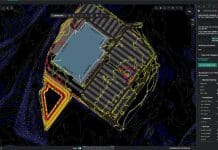
Kier has announced its new initiative to train its mental first aiders to spot the signs of modern slavery and exploitation in the workplace
Kier is the first UK contractor to train its mental health first aiders (MHFAs) to spot the signs of modern slavery and exploitation.
With 900 colleagues having become MHFAs at Kier, the new training is being delivered through Midlands-based social enterprise Jericho, an organisation that creates positive change in society including supporting victims of modern slavery.
Kier is also introducing a Level 1 qualification that has been created with the GLAA (Gangmasters and Labour Abuse Authority) and Skills and Education Group.
The qualification – delivered remotely by Boston College and Sheffield College -will teach people about basic employment rights provided by UK law, how to identify and report exploitation, and the signs to look out for.
‘Preventing people from becoming unsuspecting victims of modern slavery’
David Foster, group legal and compliance director at Kier, said: “Modern slavery and any exploitation on site is unacceptable and, working alongside the Gangmasters and Labour Abuse Authority (GLAA), we’re working to eradicate it and prevent it across our operations.
“Our Mental Health First Aiders are a fantastic community who support our colleagues and, through this new addition to their training, they will be better able to spot any signs of modern slavery trafficking or exploitation on site.
“As well as helping those that are already victims of modern slavery, we wanted to find a way to prevent people from becoming unsuspecting victims of modern slavery.
“Through the qualification, we hope to do this and will be targeting potential attendees through our early careers team, who will predominantly engage with those joining through an apprenticeship or the Kickstart scheme.”
‘Construction is a high-risk sector for modern slavery’
GLAA head of prevention and partnerships, Frank Hanson commented: “We know only too well that construction is a high-risk sector for modern slavery so we were delighted to support Kier in providing them with the resources to train their mental health first aiders in spotting the signs of exploitation.
“This is something that could easily be replicated across the labour market and we would encourage other employers to follow Kier’s lead. They would be using existing products and by engaging with the right partners, helping to make the workplace safer for everyone, including for workers within their supply chains.”













